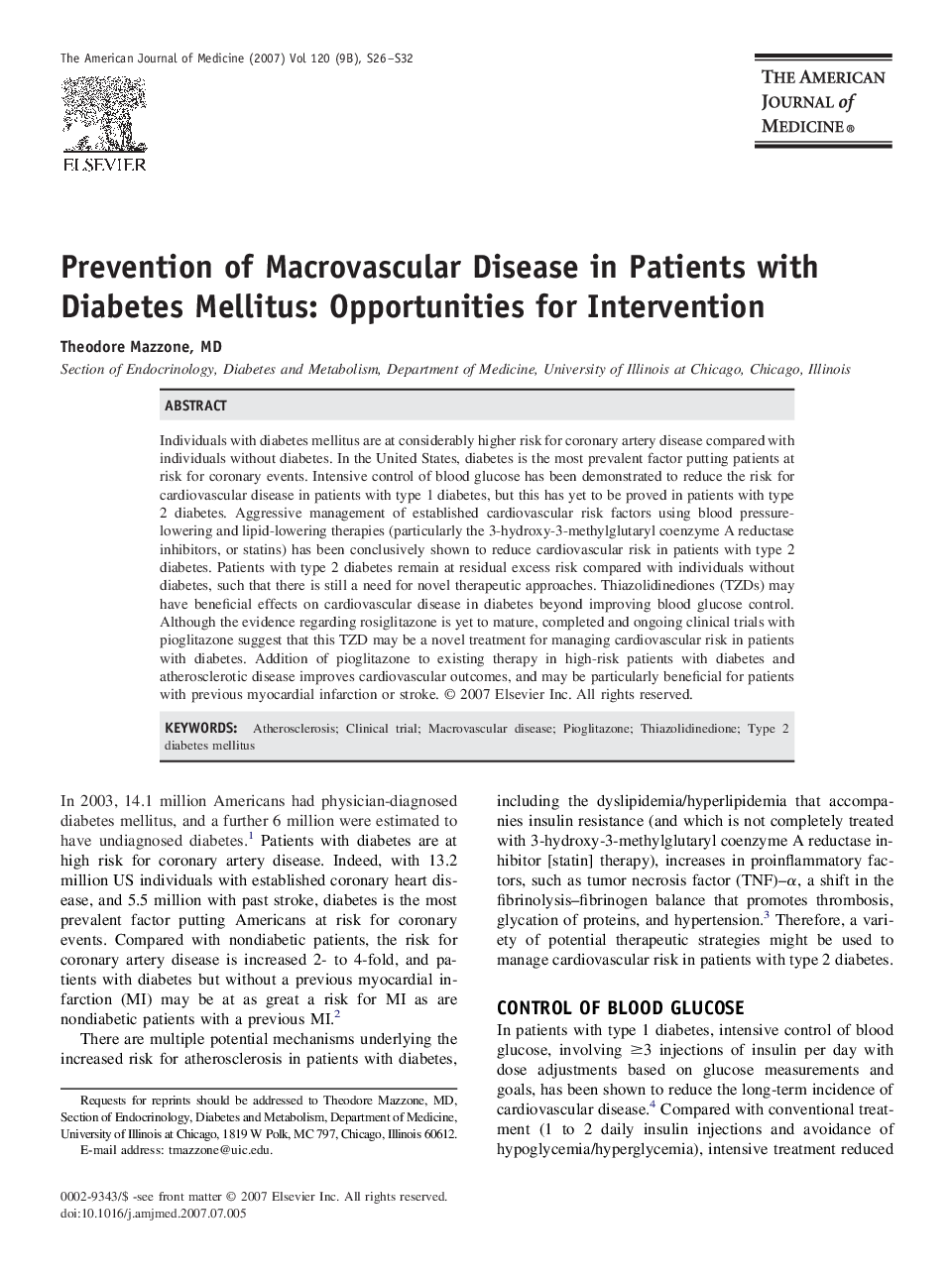| Article ID | Journal | Published Year | Pages | File Type |
|---|---|---|---|---|
| 2725175 | The American Journal of Medicine | 2007 | 7 Pages |
Individuals with diabetes mellitus are at considerably higher risk for coronary artery disease compared with individuals without diabetes. In the United States, diabetes is the most prevalent factor putting patients at risk for coronary events. Intensive control of blood glucose has been demonstrated to reduce the risk for cardiovascular disease in patients with type 1 diabetes, but this has yet to be proved in patients with type 2 diabetes. Aggressive management of established cardiovascular risk factors using blood pressure-lowering and lipid-lowering therapies (particularly the 3-hydroxy-3-methylglutaryl coenzyme A reductase inhibitors, or statins) has been conclusively shown to reduce cardiovascular risk in patients with type 2 diabetes. Patients with type 2 diabetes remain at residual excess risk compared with individuals without diabetes, such that there is still a need for novel therapeutic approaches. Thiazolidinediones (TZDs) may have beneficial effects on cardiovascular disease in diabetes beyond improving blood glucose control. Although the evidence regarding rosiglitazone is yet to mature, completed and ongoing clinical trials with pioglitazone suggest that this TZD may be a novel treatment for managing cardiovascular risk in patients with diabetes. Addition of pioglitazone to existing therapy in high-risk patients with diabetes and atherosclerotic disease improves cardiovascular outcomes, and may be particularly beneficial for patients with previous myocardial infarction or stroke.
